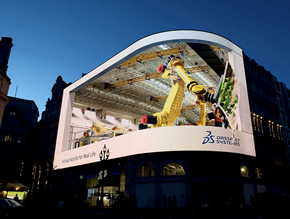Supply chain data on Turkey’s manufacturing sector recovery

The earthquake which hit Turkey and Syria in early February was the strongest in almost a century, reaching a magnitude of 7.8 and killing up to 40,000 people.
While Syria’s infrastructure has faced devastation for 12 years following the civil war, the ruin in Turkey will cause another round of supply chain disruption due to damaged ports, bridges and roads, as well as factories.
Using specialist mapping technology, global supply chain risk management company Resilinc has shared data on the earthquake’s impact on Turkey’s manufacturing sector and the supply chain.
Vehicle and machinery manufacturing
Turkey’s manufacturing sector covers:
- Vehicles, including models by Renault and Fiat, which are responsible 15.2% of Turkey’s total exports, totaling US$23.9bn
- Machinery, which reaches US$13.8bn
- Electrical equipment, to a sum of US$8.1bn
Resilinc’s data estimates that approximately 900 manufacturing, assembling, warehousing and distribution sites have been impacted by the earthquake. The most severely impacted industries are the automotive sector and general manufacturing. Resilinc’s data suggests that the recovery time for these manufacturers will take up to eight months.
Turkey’s manufacturing sector recovery
Bindiya Vakil, CEO and co-founder of Resilinc, says that it could take up to half a year for the manufacturers across Turkey to get back to normal.
“The deadly earthquake that struck Turkey and Syria has severely damaged the countries' infrastructure,” says Vakil. “With ports and airport closures, road and rail damage, power outages, as well as oil and gas shortages, supply chains are already disrupted. With rescue and recovery efforts still underway, the longer-term global supply chain impact remains to be seen.
“However, based on our supply chain mapping data, we estimate that the recovery time will be around six to eight months. We’ve mapped over 900 sites (in industries we monitor for) that could be impacted within a 250-mile radius of the earthquake epicentre. These sites’ activities include manufacturing, assembly, warehousing, distribution, fabrication, and testing.”
- Capgemini: UK manufacturing and reindustrialisationProduction & Operations
- Dassault Systèmes Bring AR Manufacturing Showcase to LondonSmart Manufacturing
- RoboSAPIENS Project to Improve Human Trust in RobotsAI & Automation
- Taiwan Global Frontrunner In Manufacturing AI AdoptionAI & Automation






